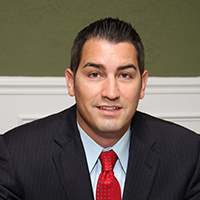Carbon County, PA White Collar Crime Lawyers
Sponsored Law Firm
-
 x
x

Click For More Info:
-
The Law Offices of Richard L. Cooper, P.A.
848 Brickell Avenue Suite 800 Miami, FL 33131» view mapDWI/DUI, Drug Trafficking, Felony Nationally Ranked Top 40 Under 40
With Richard L. Cooper you can expect a trusted confidant who will work diligently to fully understand your case and determine a road map to help you regain control of your life.
800-756-2781
Not enough matches for Carbon White Collar Crime lawyer.
Below are all Carbon lawyers.
Jason Michael Rapa
✓ VERIFIEDCriminal, Credit & Debt, Personal Injury, Bankruptcy, Car Accident
Jason M. Rapa, Esquire, is a lawyer licensed and admitted to practice law in the State of Pennsylvania and before all three Pennsylvania Federal Court... (more)
James Robert Nanovic
Power of Attorney, Real Estate Other, Class Action, Immigration
Status: In Good Standing Licensed: 39 Years
Michael Lewis Ozalas
Education, Real Estate, Wills & Probate, Divorce & Family Law, Consumer Rights
Status: In Good Standing

 Richard L. Cooper Miami, FL
Richard L. Cooper Miami, FL AboutMiami Attorney at Law
AboutMiami Attorney at Law ServicesCriminal Defense
ServicesCriminal Defense

